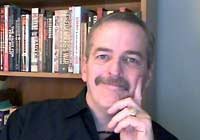GMO Geopolitics: Putin Confirms It
Joseph P. Farrell
 For years I've been arguing that there is a GMO geopolitics going on in the world, as European and American agribusiness cartels - think only of IG Farbensanto, my nickname for the whole GMO-food control project, recently made a reality by German giant Bayer buying out American Monsanto (in cash!) - try to gain control of the world's food supply through patented seeds, and while other countries, Russia and India, have resisted. I've been arguing that Russia's growing stance against GMOs would position it as the world's biggest non-GMO food supplier. This article, shared by Mr. B., makes it abundantly clear that this is exactly what is in Mr. Putin's mind: For years I've been arguing that there is a GMO geopolitics going on in the world, as European and American agribusiness cartels - think only of IG Farbensanto, my nickname for the whole GMO-food control project, recently made a reality by German giant Bayer buying out American Monsanto (in cash!) - try to gain control of the world's food supply through patented seeds, and while other countries, Russia and India, have resisted. I've been arguing that Russia's growing stance against GMOs would position it as the world's biggest non-GMO food supplier. This article, shared by Mr. B., makes it abundantly clear that this is exactly what is in Mr. Putin's mind:
Russia positions itself to supply the world with organic food
Mr Putin makes Russia's food and agricultural strategy clear:
The country voiced concerns about the effect GMOs and their associated pesticides have on the environment, which often cause irreversible damage to Earth’s valuable resources. Russia has set itself apart from other nations through its rejection of modified foods, proving they are not in fact required for humans to survive – as the biotech industry will have you believe.
“Not only can we ourselves eat it, but also taking into account our land and water – which is particularly important – resources Russia could become the world’s largest supplier of healthy, environmentally friendly, high-quality food that has long been missing in some western producers,” said Russian President Vladimir Putin.
...
“Especially as the demand on the global market for such products is growing,” he added.
Putin is right. Organic food sales more than tripled between 2004 and 2014, growing from $11.6 billion in sales to nearly $36 billion, according to the Organic Trade Association. Globally, organic food and drink sales are expected to reach $104.5 billion, up from just $57.2 billion in 2010.(2)
In other words, there's a growing global market to be tapped, and Mr. Putin means to tap it.
Which brings us to another article, shared by Mr. T.M.:
Putin is cutting down on military spending to pay for his 'Russia First' agenda
This article is odd in that it begins with a picture of President Putin with Russian Federation Defense Minister Shoigu. Whether or not this is a stock picture is unknown, but it is perhaps interesting that it occurs in an article about Mr. Putin's fourth term agenda: a cut-down on military spending, which the article notes is in flat contradiction to the western media's hype about the Russian military threat, and an attention on the development of Russian infrastructure:
Inaugurated for his fourth official term as Russia's president Monday, Vladimir Putin surprised many by declaring what sounds like a "Russia first" program: a relentless focus on domestic development, to be partially paid for by sharp cuts in defense spending.
It may sound contrary to Western perceptions of Russia's global intentions. But the priorities listed in the new Kremlin strategic program suggest that Mr. Putin has decided to use what seems likely to be his final term in office to cement his already substantial legacyas a nation-builder.
The projected surge in spending on roads, education, and health care will have to be paid for. A key source of that funding will be the military budget, which had been growing by around 10% annually for much of the Putin era.
...
In his decree, Putin ordered the new government to draw up a detailed plan by Oct. 1, aimed at social objectives that polls show many Russians find attractive. Those include increasing real incomes, raising pensions, improving housing, cutting poverty, and expanding access to quality health care. He also called for plans to invest in high-tech and export-oriented industries, and to create "transport corridors" to strengthen Russia's road, rail, and sea connections with the wider world. (Emphasis added)
I've long suspected that, at least in part, the western hysteria about Russia's "ambitions" under Mr. Putin was directly tied to Russia's stance against GMOs, and the growth of Russian agriculture since the collapse of the Soviet Union. Recall, for example, that during the beginning of the Ukrainian crisis, Mon(ster)santo and other agribusiness cartels had successfully lobbied for certain ports and deals with the new regime in Kiev. Until, that is, Mr. Putin put a stop to it by reincorporating the Crimea into the Russian Federation, retaining control over the vital port of Sevastopol, and giving the Russian Black Sea fleet an interdiction capability throughout the Black Sea. Additionally, it secures those sealanes for Russian exports to Turkey.
As I pointed out a few weeks ago, Mr. Putin alluded to these changes in direction, by highlighting the expansion of Russian agriculture, and the need to strengthen its transportation infrastructure. In short: if Russia means to play the GMO geopolitics game, its infrastructure - particularly in Siberia and central Asia, will have to be expanded. Similarly, in addition to the sea lanes through the Black and Caspian Seas, redundancy for trade with the south - Turkey, Iran, Syria - will have to be built in in the form of railroads and roads.
What we're looking at is a long-term and ambitious project, and funding for it will not come solely from cuts in Russia's defense budget. Investment will have to come from elsewhere. The usual suspect - China - of course presents itself. But there's another player in the region, one looking increasingly askance at America's reliability, and one which needs more secure energy and food supplies. "More secure" translates into "closer to hand," and that's Japan.
Mr. Abe and Mr. Putin have already coordinated a number of deals, and have managed to bypass the delicate sticking point of the Kurile islands.
Look for more of the same in the coming years of Mr. Putin's fourth term.
A lot more.
See you on the flip side...

Born and raised in Sioux Falls, South Dakota, Joseph P. Farrell has a doctorate in patristics from the University of Oxford, and pursues research in physics, alternative history and science, and "strange stuff". His book The Giza DeathStar was published in the spring of 2002, and was his first venture into "alternative history and science". Following a paradigm of researching the relationship between alternative history and science, Farrell has followed with a stunning series of books, each conceived to stand alone, but each also conceived in a pre-arranged sequence:
- The Giza Death Star
- The Giza Death Star Deployed
- Reich of the Black Sun
- The Giza Death Star Destroyed
- The SS Brotherhood of the Bell
- The Cosmic War
- Secrets of the Unified Field
- The Philosophers' Stone
- The Nazi International
- Babylon's Banksters
- Roswell and the Reich
- LBJ and the Conspiracy to Kill Kennedy
- Genes, Giants, Monsters and Men
- The Grid of the Gods, with Dr. Scott D. de Hart
- Saucers Swastikas and Psyops
- Yahweh the Two-Faced God: Theology, Terrorism, and Topology, with Dr. Scott D. de Hart (Amazon Kindle e-book)
- Transhumanism: A Grimoire of Alchemical Altars and Agendas for the Transformation of Man (with Dr. Scott D de Hart, 2012)
- Yahweh the Two-Faced God: Theology,Terrorism, and Topology (Lulu Print-on-demand book, 2012)
- Covert Wars and Breakaway Civilizations: The Secret Space Program, Celestial Psyops, and Hidden Conflicts (2012)
- The Financial Vipers of Venice: Alchemical Money, Magical Physics, and Banking in the Middle Ages and Renaissance (2013)
- Covert Wars and the Clash of Civilizations: UFOs, Oligarchs, and Space Secrey (2013)
- Talk Radio for the Eyes: Transhumanism in Dialogue; with Dr. Scott D. de Hart (2013)
- Thrice Great Hermetica and the Janus Age: Hermetic Cosmology, Finance, Politics and Culture in the Middle Ages through the Late Renaissance(2014)
- The Third Way: The Nazi International, The European Union, and Corporate Fascism (2015)
- Rotten to the (Common) Core: Public Schooling, Standardized Tests, and the Surveillance State (2o16)
- Hidden Finance, Rogue Networks, and Secret Sorcery: the Fascist International, 9/11, and Penetrated Operations
- Hess and the Penguins: The Holocaust, Antarctica, and the Strange Case of Rudolf Hess
gizadeathstar.com
|


![[Most Recent Quotes from www.kitco.com]](http://www.kitconet.com/charts/metals/gold/t24_au_en_usoz_2.gif)
![[Most Recent USD from www.kitco.com]](http://www.weblinks247.com/indexes/idx24_usd_en_2.gif)
![[Most Recent Quotes from www.kitco.com]](http://www.kitconet.com/charts/metals/silver/t24_ag_en_usoz_2.gif)


